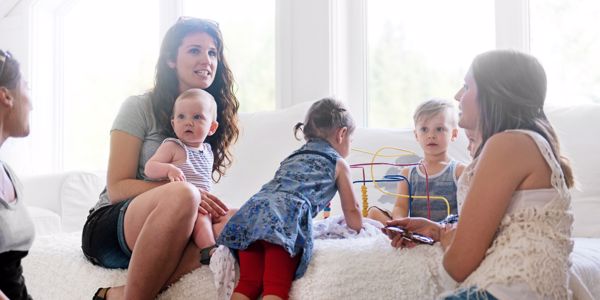In my thirties, I don’t have a lot of close-knit friends, but I thought I would when I was younger. Some drifted away amicably, others not so amicably over the years.
I get on with people I know through work, and am still very close with my two friends from university, though distance means we don’t spend as much time together as I would like, but when I was a child I had a group of friends including a best friend, so it was hard when I found out that my middle child doesn’t have any friends at school, and hasn’t for some time. There has been some bullying involved, but generally speaking, she just doesn’t get on well with other children, especially other girls, and it is a journey that we are still navigating.
Here are some of my top tips for how to deal with it...
Discuss With the School
The first port of call was to speak with the school and find out what was going on, to help me to understand further than what my daughter had already shared with me.
It also meant that they were aware and able to assist where necessary, including altering seating plans within the classroom to accommodate and encourage the chance of her making new friendships in class. The teacher set up a communication book, to be used between us and her, as I work full time and don’t do the school run myself, which allows me to keep on top of everything going on at school each day, and to raise any issues quickly.
Encourage Extra-Curricular Activities
As friendships within the class don’t seem to be working out, I encouraged my daughter to look into after-school clubs that she might be interested in, as having a shared interest with others may help make friendships easier to cultivate.
It also gives a focus outside of school, which helps when the issue is making her less happy during the day, it may give her something to look forward to and distract her.
Provide a Safe Space
Both myself and her dad, who doesn’t live with us, have explained to our daughter that we are here for her to discuss anything at all. We want to make sure she knows that our homes are a safe space where she can talk to us about what might be upsetting her, including worries about friendships and bullying, as it can be easy for children to bottle things up and hide their emotions.
By allowing her the chance to talk, we can help her to problem solve and to reassure her that everything will be ok.
Spend Time with Friends and Family with Children
I am lucky to be a part of a big family, and I have taken advantage of this closeness, by spending as much time as possible with family who have children of similar ages to my daughter. Also organising play dates with friends whose children may get along with her too. School isn’t the only place to make friends, and it's lovely to see her thrive in another environment.
Address Any Deeper Issues
Of course, it is important to rule out any deeper issues or problems that there might be that are causing the issues between our daughter and her peers. By speaking with the school, I am able to find out more detail on what is going on, and whether the way she is acting has any impact on why others aren’t talking to her.
The emotional impact it is having on her is also important to monitor, and if she is still finding it tough as she goes through the school year, it may be important to seek further help, whether that is through speaking with a medical practitioner or a therapist.
Making friends can be a challenge at any age, but it is so tough during your school years. I am processing the impact this may have on my daughter as she grows up, and working on ways to minimise these lasting effects, whilst coming up with solutions on how to make friends both inside and outside of the school environment.







